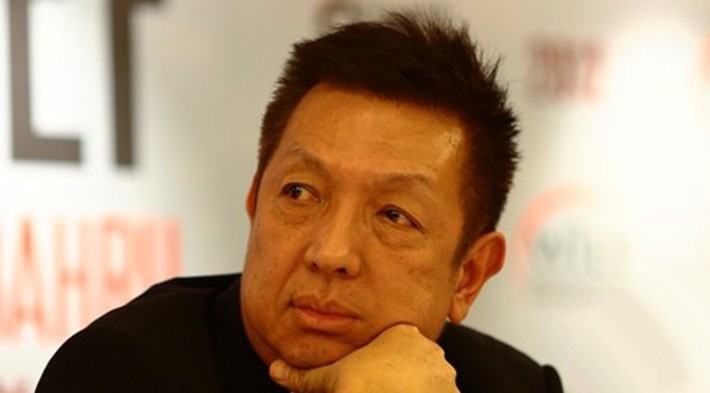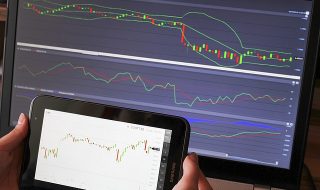
Peter Lim is one of Singapore’s best known billionaires. Besides owning the image of Cristiano Ronaldo, the man is famed for his candid sharing and no nonsense remarks. Here’s some of the things we can pick up from him, even if we’re not high flying stock traders:
1. It’s Easier to Build than to Trade
“It’s very difficult to make money from trading. People who get rich are those who buy a company, build it, run it. Most of the traders, they come, they make money, because they have this gambling instinct. They take the money and spend it. The minute they lose money, they got no money to pay up.”
For those of you into equities, it’s a sober comment on stock trading. Most people won’t get rich doing it. If you have significant capital, maybe it’s better to consider setting up a small side business first – even if you don’t succeed, you’ll at least have a better understanding of how they operate.
For those of you who aren’t into equities, take it as a personal finance lesson. If you want to have a consistent income stream, don’t count on things like the resale value of your flat, or your gold and watch collection. You’ll have a more reliable shot at wealth by building a small side-business (however many attempts it takes).
2. Always be Braced for Losses
When you are holding stocks, if it goes up, don’t be too happy; when it goes down, don’t be too sad. Otherwise, how? Your life will also be fluctuating and you’ll die of a heart attack.
If you really lose sleep over it, maybe the best way is to keep the money in the bank.
What would happen if you bought S$5,000 worth of shares today, and you find they’re worth S$3,000 tomorrow? Would you have the ability to simply move on and chase the next dollar?
If the answer is no, you haven’t got the right mindset to get rich through trading. It is important that you have the psychological resilience to accept losses and gains (which carry their own perils, like overconfidence). It will also impact your career and happiness, if you feel a need to track your stock prices every 30 minutes.
If you don’t have the required sense of calm, then don’t get involved. Get a financial advisor to handle your investments, or keep it in your CPF (you’ll get better returns than from the bank).
3. Think Long Term When Investing
You have to invest with a longer-term mindset. You buy a good stock, leave it there for 10 years. Come 10 years, this dollar can be many, many multiples. I think the trick is really to think long-term. You may not have a lot of money, but you have a lot of time. The minimum length of my investments are five to six years, if not 10 to 12 years.
This is somewhat related to point 1. If you’re eager to trade and go for short term profits, you might get rich – but you’re making it much harder to do so. Remember, every trade requires two correct decisions: when to buy, and when to sell. Even if you get one right, you are likely to get the other one wrong.
For those of you who aren’t investing, this should be a call for you to start. Even a small amount of money, invested over 10 or 15 years in a reliable asset, can amount to significant sums.
If you invest just S$200 a month, at a return of 5% (achievable with most index funds and insurance policies), you would have over S$59,000 at the end of 15 years.
4. Don’t Just Work, Pay Attention to How Your Company is Run
Mr. Lim didn’t actually get a huge head start. Some of his early jobs were waiter, cook, and taxi driver. It was only much later that he became a stockbroker. During his rise, Mr. Lim learned a lot from the fast food chain Red Rooster, where he worked as a cook. Systems, management processes, logistics, accounting, etc. are all instrumental if you want to understand how well a business runs, and will come in useful when you want to invest or run your own.
So rather than just doing your job, poke your nose around. Find out how your company’s business model works, where it fails and succeeds, and which are the skills critical to its running.
5. It’s About Making a Good Deal, not a Good Sale
You make money when you buy, NOT when you sell.
Value investors already know this, but it’s worth a reminder. Rather than buy something and hope it grows in value, buy it cheaper and wait for it to return to its usual price. We especially love this one, because it’s so applicable in personal finance – taking the time to look for a better deal is the surest way to “make” money. Whether you’re buying a second hand car, or buying a melon at the supermarket.
One way to save money is to pay with a cashback credit card, which gives you a small discount on your purchases when you meet a minimum purchase amount. As long as your bill is paid in full each month, you always avoid paying full price. SingSaver.com.sg has a list of good cashback cards to get you started.
(This article is brought to you by SingSaver.com.sg)






